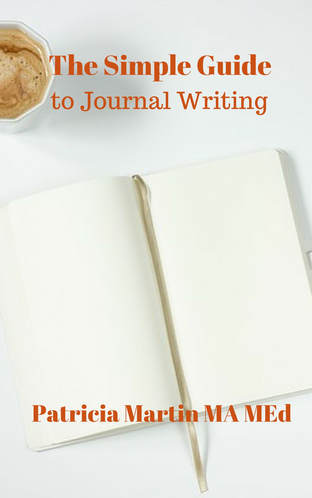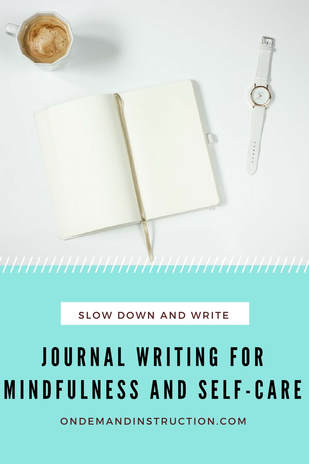
Sometimes in the writing field, people are shuffled down two paths of thought: using writing as a means to making money and using writing as a means to making an academic career. The internet can attest to hundreds of programs, gurus, and professional coaches who promise that individual writers can become the next JK Rowling or Dan Brown by writing, marketing, and selling. Writing becomes the means to an end, and that end is advertised as a big house and fast car. Down the other path, writing is a forensic tool to dissecting literature, historical events, and human interaction. Academics hone their writing skills to compete in the world of publish or perish, the land where those who win are those who make discoveries on cutting-edge topics and stay ahead of the pack of fellow academics by writing as quickly as possible. During my time as a writer, I have walked both of these paths. I have written, published, and marketed with the hopes that one of my books would be of such high interest that ten thousand readers would buy a copy and share it with their friends as a must read. The path from writing to making money is wrapped up in the drive that Americans have with materialism as both of a foundation for a wealthy life but also a personal affirmation of value. When we make money, we have a sense of being valued, and writers can get caught up in the drive to connect writing and making money. Although writing for money and academic publishing have their merits, both of these paths give a false promise of personal satisfaction. People who are driven to write, regardless of their talent or academic achievements, gain pleasure through the act of writing. The writing itself is therapeutic, relaxing, and supports our need to make sense of the world. The Therapeutic Value of Storytelling
Writing—the act of organizing words onto the page is an activity that fulfills more than money or notoriety can. The reason is that when we write for money or fame, we are writing for extrinsic factors. We are writing because we expect acknowledgment to come from outside of ourselves. We are hoping for dollars, for spoken appreciation, or for acknowledgment in a professional field, but those forms of recognition are short-lived and leave us with a sense of wanting more. Writing for others does not heal, so we continue to seek rather than feel fulfilled.
By changing our mindset, we can connect to a therapeutic process in writing. When we write without an intended audience, we write for ourselves, and this can change the dynamic of why we write and how we write. When we write for ourselves, we cut away the exterior masks that we normally keep firmly in place to operate in the social world. But when we write for ourselves, we can be totally honest and open. When we write for ourselves, we can be genuine and truthful in our intentions, and this expanded truth allows us to open up mental and emotional pathways that serve us as writers. Writing to Heal
Through journaling, diary entries, personal reflections, and personal essays, writers seek to connect and develop the self through writing. The process of writing can help us make sense of the world, sort through our complex thoughts and emotions, and create patterns out of chaos. Many writers compose solely for their own purposes, and they are sometimes the most balanced writers as they are accessing a writing format that provides them with an outlet for making sense of life’s complexities. This is the process of writing to heal.
How do we write for ourselves?
There are activities like journaling and diary writing that are open-ended, and many writers enjoy an open format style for personal writing. If that works for you, try to write more in that area.
One of the most effective formats is to write one’s own story. This style of personal writing may feel a little uncomfortable at the beginning but has real, lasting, and even measurable lasting impact. Many writers admit having at least some self-doubt, uncertainty, or question in their lives. Whether those thoughts and feelings come from having a bumpy path through childhood, a partner who questions one’s true value, or a cultural experience that includes shame, blame, or regret over past deeds, writers can sometimes question what we want from life. When we write and rewrite our personal stories, we engage in writing that is truly therapeutic because it has the power to make changes in us as individuals. Composing your own story as a personal writing exercise might seem a little odd at the beginning, but once you give it a try, you will likely find the exercise to work wonders for your writing practice. Storytelling Exercises
Consider these questions when writing without an audience to jumpstart your personal writing practice:
A backstory focused on phrases: What are the phrases you hear yourself saying regularly? How do these phrases affect you? What different phrases can you use as replacements? Write that story. A current story focused on needs: What is it that you need or want? What would your life look like, feel like, and operate like if you have that thing right now? Write that story. A future story focused on desired events: What events would you like to happen? What experiences would you like to be a part of? Write that story. Humans are naturally attuned to storytelling. When we have a situation that comes up, we create a story around it, and sometimes those stories create negative pathways that limit our productivity later in life. Rewriting our stories reconnects us with our purposes and goals and gives us a writing task that serves our intrinsic needs for our own purposes. Instead of writing for money or publishing, we can write for personal gain. If you are able to answer a couple of the questions above, then start writing along those ideas with the goal of moving towards writing one’s story. Perhaps a phrase you have used is, “I can’t remember anything.” This is one that I’ve used myself and has impacted me. It affects me in that I’m making an excuse for being occasionally forgetful. So, when I forget my phone at home or leave my scarf behind, I might tell myself, “I can’t remember anything.” I need to get rid of that phrase before it does more damage. A possible replacement might be, “I am accomplishing a lot.” Sure, I might forget my phone or leave my scarf behind but instead of creating a reason that I am forgetful, I can acknowledge the more accurate truth that I am a busy person trying to accomplish a lot of tasks in a day, and sometimes details fall through the cracks. Instead of telling myself, “I can’t remember anything,” I am going to change that to, “I am accomplishing a lot.”
In my journal, my next step is to rewrite my story. When engaging in this type of writing activity, it is perfectly OK to rewrite the past, the present, or the future—all of it. So, I might write the story of forgetting my phone at home and replace the negative phrase with the more positive one. This activity allows me to reframe my story in a positive light and acknowledge me for what I do accomplish, which is to complete a significant number of tasks in a single day.
As well, I can write my present or future story just as easily. By projecting my intended outcomes and purposes into my present or future story, I harness the power of the narrative to rewrite what I am doing, why I am doing it, and the outcomes that I experience because of my actions. This style of personal writing has the power to create both immediate and lasting impact on any writer. Regardless if you have a high IQ and academic degrees or a high-power profession with significant income and professional fame or if you are a more average person who values friends and family, personal writing can create an immediate impact. It allows writers to reframe the events of the past, correct the viewpoint of the present, and design a future that fits your true intentions and desired outcomes. Related Blog PostsComments are closed.
|
About the SiteWelcome, Writers! Archives
September 2023
|








 RSS Feed
RSS Feed